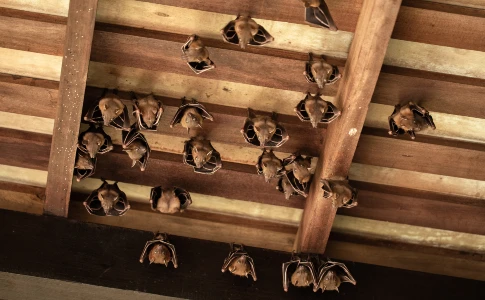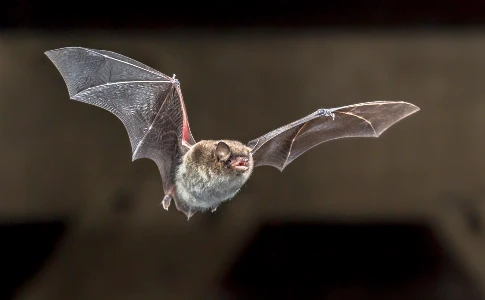Bat Removal
Kennesaw, Ga

Bat Displacement & Intrusion Prevention Services
Providing a comprehensive bat management program in Kennesaw, Dixie Exterminators specialize in both the displacement of bats and the installation of measures to deter their return. Our wildlife experts are proficient in using exclusion methods, pinpointing and sealing off typical bat entry points such as roof gaps and various types of vents. Further, we deal with the clean-up and replacement of insulation that bats often soil with their droppings, also known as guano.
Kennesaw's Bat-Related Challenges, Georgia
In Kennesaw, the chief issue stems from bat colonies. Large congregations of bats not only induce noise disturbances and visual distress at twilight hours, but they also lead to sanitary concerns due to their droppings and urine. As time progresses, these excrements amass into sizeable heaps, emitting an offensive stench and fostering fungal spore growth. When inhaled, these spores can result in Histoplasmosis, a serious lung condition. If you're grappling with a bat problem in Kennesaw, we're here to help with effective bat displacement, isolation, and sanitation services.
Getting to Know Bats
Bats, part of the order Chiroptera, are the only mammals capable of maintaining genuine, long-term flight due to their wing-like webbed forelimbs. With about 1,100 recognized bat species globally, they make up nearly 20% of all cataloged mammal species. Predominantly insectivorous, around 70% of bats feed on insects. The rest mostly comprise fruit eaters, or frugivores, with a small proportion feeding on animals other than insects. Bats, present in numerous parts of the world, play crucial roles in ecosystems, such as flower pollination and seed dispersion for fruit. Many tropical plant species rely solely on bats for their seed dispersal.

Bat Reproductive Patterns
Bats, particularly those inhabiting temperate climates, usually have their breeding season in spring. Depending on the species and environmental factors like food availability and roosting sites, bats may birth one to three litters each season. Most bats are nocturnal, devoting their daytime to sleep, grooming, and rest, and hunting during the night. Bats' diets primarily consist of insects, fruits, and flower nectar, with some species consuming vertebrates and blood. Nearly three-fourths of all bat species are insect eaters, feeding on both airborne and terrestrial insects. A bat can usually consume insects amounting to one-third of its body weight in a single night, equaling hundreds of insects in a few hours. Consequently, a colony of a thousand bats could devour up to four tons of insects annually.
Connect with Us for Bat Displacement Services in Kennesaw
If your home has been invaded by bats, we are just a call away. Reach out to us today for trusted bat removal services!
770.424.1300